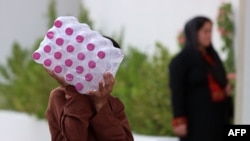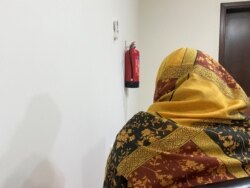Afghans who fled their country this week have spoken about their despair at leaving loved ones behind and the uncertain future ahead of them after the Taliban's rapid takeover.
The Taliban advance has led to a mass evacuation of Afghans and foreigners amid fears of reprisals and a return to a harsh interpretation of Islamic law.
"It was very difficult to leave my country," a veiled woman told Reuters in Doha, Qatar. "I love my country."
She explained that before the Taliban arrived, she had never expected to go anywhere.
The woman said she fled with her husband, a dentist, and three children, fearing that her work with international humanitarian organizations would make them a Taliban target.
The woman is one of several hundred evacuees temporarily housed in a residential compound in Doha visited by Reuters.
The Qatar government is hosting thousands of evacuees until they can enter a third country.
A man at the compound told Reuters he was not hopeful that the Taliban would keep their promises, which have included respecting women's rights and an amnesty for those who worked in the government or with foreigners.
"The most disturbing part is that there is not a lot of hope for the future," said the man, who arrived in Doha this week with his wife, three children, parents and two sisters.
The man, a lawyer, said he feared that if he had stayed in Afghanistan, he would have also become a target of the Taliban, in part because of his work with international companies.
"It's going to be a very, very different and challenging life ahead of us," he said.
The Afghans who spoke with Reuters in Doha all requested anonymity because of concerns for family members still in Afghanistan.
"It's not easy because they are not safe," the man said.
"There is a lot of expectation on me to help them get out of there and at times you really see yourself being really helpless," he said.
Another man, a second-year law student, spoke of looting by the Taliban as they took control of Kabul and said he had seen armed militants intimidate people on their way to the airport.
Evacuated to Qatar with his sister, he does not know how he will be able to complete his studies. He left behind his wife, whom he married in a video call before evacuating.
"Our minds are back home because our families remain. My wife is there. My parents are there, my siblings. I just hope they are evacuated … in case that doesn't happen and things go wrong, I think I would make up my mind and wish to go back."






